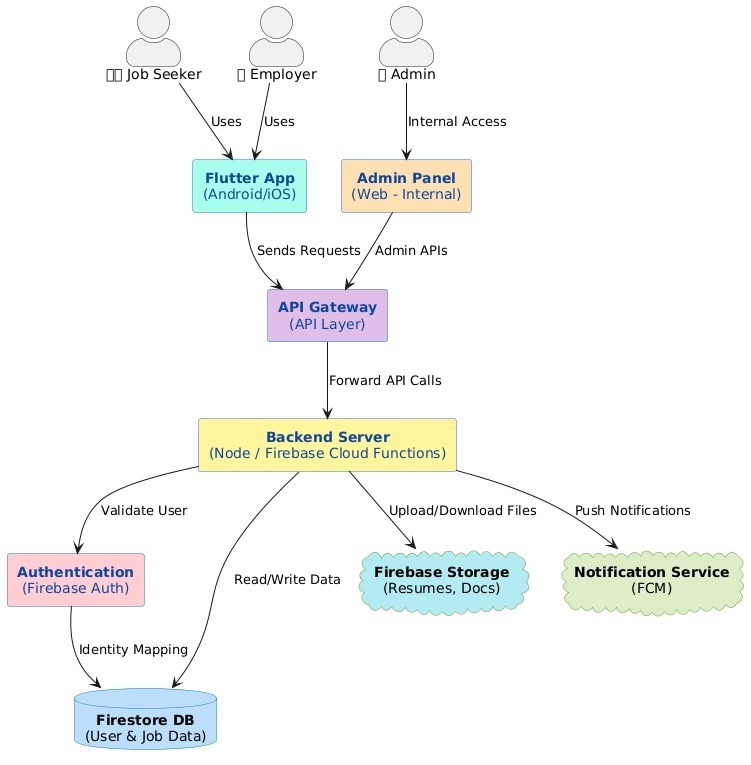Speed Up Your Python Code with These Underrated Tricks
Python is widely celebrated for its simplicity and readability, making it a favorite among beginners and seasoned developers alike. However, it's also known that Python may not always be the fastest language when it comes to raw execution speed, especially in compute-intensive scenarios. Fortunately, with a thoughtful approach and the application of smart performance optimization techniques, you can significantly boost the speed and efficiency of your Python code without compromising its clean and elegant syntax. From leveraging built-in functions and data structures to adopting libraries like NumPy, using just-in-time compilers like Numba, or optimizing loops and memory usage, there are many powerful strategies at your disposal. These performance enhancements allow you to write Python code that not only remains highly readable and maintainable but also delivers near-native speed in the right contexts. 1. Use List Comprehensions Instead of Loops Loops are slower compared to list comprehensions, which are optimized in Python. ❌ Slow: squared = [] for i in range(10): squared.append(i ** 2) ✅ Faster: squared = [i ** 2 for i in range(10)] 2. Use join() Instead of String Concatenation String concatenation in a loop is inefficient since strings are immutable. ❌ Slow: result = "" for word in ["Hello", "World"]: result += word + " " ✅ Faster: result = " ".join(["Hello", "World"]) 3. Use map() Instead of Loops for Transformations Built-in functions like map() can be faster than explicit loops. ❌ Slow: numbers = [1, 2, 3, 4] squared = [] for num in numbers: squared.append(num ** 2) ✅ Faster: squared = list(map(lambda x: x ** 2, numbers)) 4. Use set for Faster Membership Checks Checking for values in a list (O(n)) is slower than using a set (O(1)). ❌ Slow: items = ["apple", "banana", "cherry"] if "banana" in items: print("Found!") ✅ Faster: items = {"apple", "banana", "cherry"} # Using a set if "banana" in items: print("Found!") 5. Use functools.lru_cache for Memoization If a function performs expensive calculations, cache results to speed up repeated calls. from functools import lru_cache @lru_cache(maxsize=1000) def expensive_function(n): print("Computing...") return n * n 6. Use multiprocessing for Parallel Execution Python’s multiprocessing module allows you to use multiple CPU cores. from multiprocessing import Pool def square(n): return n ** 2 with Pool(4) as p: results = p.map(square, range(10)) 7. Avoid Global Variables Python slows down when accessing global variables in loops. Use local variables instead. ❌ Slow: x = 10 def compute(): for _ in range(1000000): global x x += 1 ✅ Faster: def compute(): x = 10 # Local scope is faster for _ in range(1000000): x += 1 8. Use cython or numba for Heavy Computation If your Python code involves a lot of number crunching, use cython or numba for just-in-time (JIT) compilation. from numba import jit @jit(nopython=True) def fast_function(n): return n * n 9. Use itertools for Memory-Efficient Iteration Instead of storing large lists in memory, use iterators from itertools. from itertools import islice with open("large_file.txt") as f: first_10_lines = list(islice(f, 10)) 10. Prefer f-strings Over format() Python’s f-strings are faster than .format() for string formatting. ❌ Slow: name = "John" greeting = "Hello, {}".format(name) ✅ Faster: name = "John" greeting = f"Hello, {name}" 11. Use enumerate() Instead of Range Avoid manually managing an index when iterating through lists. ❌ Slow Approach: items = ["apple", "banana", "cherry"] for i in range(len(items)): print(i, items[i]) ✅ Faster Approach: items = ["apple", "banana", "cherry"] for i, item in enumerate(items): print(i, item) Why? enumerate() is optimized and makes the code more readable. 12. Use zip() for Parallel Iteration Instead of iterating through multiple lists using indexing, use zip(). ❌ Slow Approach: names = ["Alice", "Bob", "Charlie"] ages = [25, 30, 35] for i in range(len(names)): print(names[i], ages[i]) ✅ Faster Approach: for name, age in zip(names, ages): print(name, age) Why? zip() is faster and avoids manual indexing. 13. Use itertools for Memory Efficiency For large datasets, itertools can help avoid unnecessary memory usage. ✅ Example: Using islice() to Limit Iteration from itertools import islice big_list = range(10**6) first_ten = list(islice(b

Python is widely celebrated for its simplicity and readability, making it a favorite among beginners and seasoned developers alike. However, it's also known that Python may not always be the fastest language when it comes to raw execution speed, especially in compute-intensive scenarios.
Fortunately, with a thoughtful approach and the application of smart performance optimization techniques, you can significantly boost the speed and efficiency of your Python code without compromising its clean and elegant syntax.
From leveraging built-in functions and data structures to adopting libraries like NumPy, using just-in-time compilers like Numba, or optimizing loops and memory usage, there are many powerful strategies at your disposal. These performance enhancements allow you to write Python code that not only remains highly readable and maintainable but also delivers near-native speed in the right contexts.
1. Use List Comprehensions Instead of Loops
Loops are slower compared to list comprehensions, which are optimized in Python.
❌ Slow:
squared = []
for i in range(10):
squared.append(i ** 2)
✅ Faster:
squared = [i ** 2 for i in range(10)]
2. Use join() Instead of String Concatenation
String concatenation in a loop is inefficient since strings are immutable.
❌ Slow:
result = ""
for word in ["Hello", "World"]:
result += word + " "
✅ Faster:
result = " ".join(["Hello", "World"])
3. Use map() Instead of Loops for Transformations
Built-in functions like map() can be faster than explicit loops.
❌ Slow:
numbers = [1, 2, 3, 4]
squared = []
for num in numbers:
squared.append(num ** 2)
✅ Faster:
squared = list(map(lambda x: x ** 2, numbers))
4. Use set for Faster Membership Checks
Checking for values in a list (O(n)) is slower than using a set (O(1)).
❌ Slow:
items = ["apple", "banana", "cherry"]
if "banana" in items:
print("Found!")
✅ Faster:
items = {"apple", "banana", "cherry"} # Using a set
if "banana" in items:
print("Found!")
5. Use functools.lru_cache for Memoization
If a function performs expensive calculations, cache results to speed up repeated calls.
from functools import lru_cache
@lru_cache(maxsize=1000)
def expensive_function(n):
print("Computing...")
return n * n
6. Use multiprocessing for Parallel Execution
Python’s multiprocessing module allows you to use multiple CPU cores.
from multiprocessing import Pool
def square(n):
return n ** 2
with Pool(4) as p:
results = p.map(square, range(10))
7. Avoid Global Variables
Python slows down when accessing global variables in loops. Use local variables instead.
❌ Slow:
x = 10
def compute():
for _ in range(1000000):
global x
x += 1
✅ Faster:
def compute():
x = 10 # Local scope is faster
for _ in range(1000000):
x += 1
8. Use cython or numba for Heavy Computation
If your Python code involves a lot of number crunching, use cython or numba for just-in-time (JIT) compilation.
from numba import jit
@jit(nopython=True)
def fast_function(n):
return n * n
9. Use itertools for Memory-Efficient Iteration
Instead of storing large lists in memory, use iterators from itertools.
from itertools import islice
with open("large_file.txt") as f:
first_10_lines = list(islice(f, 10))
10. Prefer f-strings Over format()
Python’s f-strings are faster than .format() for string formatting.
❌ Slow:
name = "John"
greeting = "Hello, {}".format(name)
✅ Faster:
name = "John"
greeting = f"Hello, {name}"
11. Use enumerate() Instead of Range
Avoid manually managing an index when iterating through lists.
❌ Slow Approach:
items = ["apple", "banana", "cherry"]
for i in range(len(items)):
print(i, items[i])
✅ Faster Approach:
items = ["apple", "banana", "cherry"]
for i, item in enumerate(items):
print(i, item)
Why? enumerate() is optimized and makes the code more readable.
12. Use zip() for Parallel Iteration
Instead of iterating through multiple lists using indexing, use zip().
❌ Slow Approach:
names = ["Alice", "Bob", "Charlie"]
ages = [25, 30, 35]
for i in range(len(names)):
print(names[i], ages[i])
✅ Faster Approach:
for name, age in zip(names, ages):
print(name, age)
Why? zip() is faster and avoids manual indexing.
13. Use itertools for Memory Efficiency
For large datasets, itertools can help avoid unnecessary memory usage.
✅ Example: Using islice() to Limit Iteration
from itertools import islice
big_list = range(10**6)
first_ten = list(islice(big_list, 10))
print(first_ten)
Why? This avoids creating a full list in memory.
14. Use defaultdict for Cleaner Dictionary Operations
Avoid key existence checks by using defaultdict.
❌ Slow Approach:
counts = {}
words = ["apple", "banana", "apple"]
for word in words:
if word in counts:
counts[word] += 1
else:
counts[word] = 1
✅ Faster Approach:
from collections import defaultdict
counts = defaultdict(int)
for word in words:
counts[word] += 1
Why? defaultdict initializes values automatically, reducing checks.
15. Use Counter for Fast Frequency Counts
Counting elements in a list is easier with collections.Counter().
❌ Slow Approach:
words = ["apple", "banana", "apple"]
word_counts = {}
for word in words:
if word in word_counts:
word_counts[word] += 1
else:
word_counts[word] = 1
✅ Faster Approach:
from collections import Counter
words = ["apple", "banana", "apple"]
word_counts = Counter(words)
Why? Counter is optimized for frequency calculations.
16. Use deque Instead of Lists for Fast Insertions
Lists are slow when inserting at the beginning. Use deque instead.
❌ Slow Approach:
items = []
items.insert(0, "new")
✅ Faster Approach:
from collections import deque
items = deque()
items.appendleft("new")
Why? deque has O(1) insertions, while lists have O(n).
17. Use any() and all() Instead of Loops
Instead of manually checking conditions, use any() or all().
❌ Slow Approach:
values = [0, 0, 1, 0]
found = False
for v in values:
if v == 1:
found = True
break
✅ Faster Approach:
values = [0, 0, 1, 0]
found = any(v == 1 for v in values)
Why? any() short-circuits as soon as it finds a True value.
18. Use sorted() with key for Custom Sorting
Instead of sorting manually, use the key argument.
❌ Slow Approach:
people = [("Alice", 25), ("Bob", 30), ("Charlie", 20)]
people.sort(key=lambda x: x[1])
✅ Faster Approach:
people = [("Alice", 25), ("Bob", 30), ("Charlie", 20)]
sorted_people = sorted(people, key=lambda x: x[1])
Why? sorted() is more optimized than manual sorting.
19. Use @staticmethod and @classmethod to Avoid Unnecessary Instantiations
Instead of creating unnecessary objects, use @staticmethod and @classmethod.
❌ Slow Approach:
class Math:
def square(self, x):
return x * x
m = Math()
print(m.square(5))
✅ Faster Approach:
class Math:
@staticmethod
def square(x):
return x * x
print(Math.square(5))
Why? No need to instantiate the class to use the method.
20. Use dataclass Instead of Regular Classes
Python's dataclass reduces boilerplate and improves performance.
❌ Slow Approach:
class Person:
def __init__(self, name, age):
self.name = name
self.age = age
✅ Faster Approach:
from dataclasses import dataclass
@dataclass
class Person:
name: str
age: int
Why? dataclass automatically generates __init__, __repr__, and __eq__.
Final Thoughts
By combining these 20 Python tricks, you can significantly improve performance, reduce memory usage, and write cleaner code.
Did I miss any of your favorite Python optimizations? Let me know in the comments!













































































